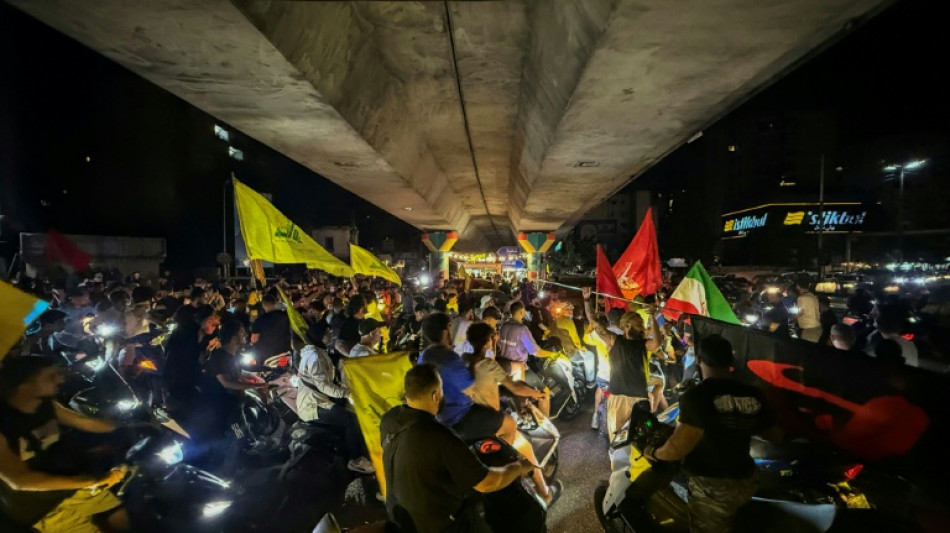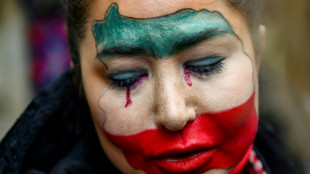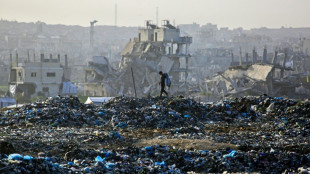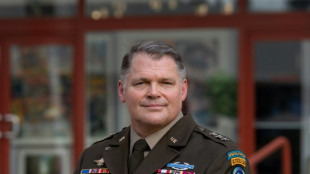

Lebanon discusses army plan to disarm Hezbollah
The Lebanese government began discussing on Friday an army plan to disarm Hezbollah, which the Iran-backed militant group says plays into the hands of Israel and the United States.
In August, under heavy US pressure and fearing Israel would intensify its strikes, Lebanon's government ordered the army to draw up a plan for disarming Hezbollah by the end of the year.
Hezbollah reiterated its opposition to the move on Wednesday, with its parliamentary bloc calling on Lebanese authorities to "reverse their... unpatriotic decision".
Local media reported Shiite ministers, including representatives of Hezbollah and its ally the Amal movement, were at the meeting Friday, after pro-Hezbollah newspaper Al Akhbar said they may refuse to discuss the plan.
The government says disarming Hezbollah is part of implementing the US-brokered ceasefire agreement from November that ended over a year of hostilities between the group and Israel.
Friday's cabinet session comes amid intensified Israeli air strikes on southern Lebanon over the past two days, which killed at least five people, according to the health ministry and the state-run National News Agency.
David Wood, a senior Lebanon analyst at the International Crisis Group, told AFP that "Israel is trying to send a message that only concrete action on disarmament, rather than pledges and words, will do the job".
Should the cabinet approve the plan, Wood said Hezbollah could consider other options like "imposing pressure on the Shiite ministers to resign from the government" or "trying to organise mass protests".
In an attempt to ease tensions, speaker of parliament and head of the Amal movement Nabih Berri called on Sunday for discussions to be "a calm and consensual dialogue".
Fadi Makki, the only Shiite minister not affiliated with Hezbollah or Amal, told AFP before the meeting began that there were "no details yet" on the army's plan.
- 'New era' -
In late August, Prime Minister Nawaf Salam said "the path of monopolising arms, extending state authority and monopolising decisions on war and peace is a path that has begun and there is no turning back".
Ahead of the session, posters depicting Salam and Lebanese President Joseph Aoun were put up in the streets of Beirut with the caption: "We are all with you. One army, one arsenal, one state. A new era for Lebanon".
Hezbollah was the most powerful political force in Lebanon before its most recent war with Israel, able to sway and disrupt governments.
The balance of power has since shifted, with Hezbollah badly weakened by the war as well as the overthrow of its ally Bashar al-Assad in Syria.
"A solution must be found, and it is preferable that it be done in a proper manner, and that disarmament be achieved through mutual understanding," Abdul Rahman Trabulsi, a 60-year-old Beirut resident, said, adding that he believes Hezbollah's role "has ended".
The group's leader Naim Qassem accused Lebanon's government of handing the country to Israel by pushing for its disarmament.
Qassem also said Hezbollah and Amal had postponed a previous call for protest to allow room for discussion and "to make adjustments before we reach a confrontation that no one wants".
However, he added, "if it is imposed on us, we will face it".
Hezbollah was the only group to keep its weapons after Lebanon's 1975-1990 civil war, doing so in the name of resistance against Israel, which occupied the south until 2000.
F.Garg--MT




